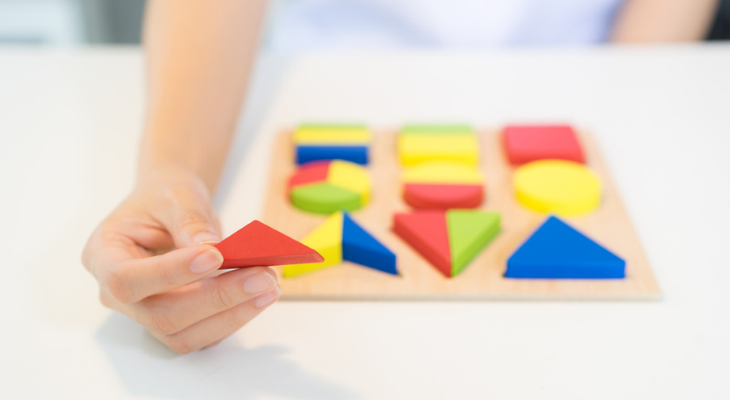
How Games and Toys Help With Vision Development in Children
Toys and games offer more benefits for your child than you may realize. Playtime helps them improve language and social skills, enhance problem-solving abilities, and develop and refine crucial vision skills. Children who play with a variety of toys and games may find it easier to master these visual skills:
Hand-Eye Coordination
Good hand-eye coordination is essential for reading, writing, using scissors, coloring inside the lines, and playing sports. Young children may have a little trouble coordinating the images they see with the movements of their bodies. Rolling a ball back and forth, playing catch, putting puzzles together, coloring, painting, and playing with Legos, blocks, or Whac-A-Mole games will help improve your child's eye-hand coordination and enhance fine motor skills.
Visual Memory
Your child relies on visual memory to remember things they saw 30 minutes or 30 days ago. Poor visual memory makes it difficult to recall the chapter you just read in your history book, remember spelling words for a test, or copy numbers and letters correctly. Playing peek-a-boo with babies is a simple way to strengthen your child's visual memory. As your child grows older, memory games that require players to remember the location of matching cards or repeat a series of dance moves can be helpful.
Tracking
Your child needs good tracking skills to follow the path of a ball in the sky, correctly guess where the ball will land, write legibly, or keep their place when reading. You can begin working on their tracking ability at a very young age. Dangle a favorite toy in front of your baby and slowly move it across their field of vision to boost their tracking skills. Older children will enjoy playing ping pong, marble racing games, or using a pencil to connect the dots or find the end of the maze.
Depth Perception
Poor depth perception can be a problem if both eyes do not work together as a team. Depth perception issues can be caused by a variety of vision conditions, including strabismus (crossed eyes), amblyopia (lazy eye), or a focusing problem called convergence insufficiency (CI). CI occurs when both eyes do not turn inward to the same degree when viewing close objects. Children who have poor depth perception may be clumsy and have trouble reading, playing sports, walking down the stairs, or even pouring a glass of milk without spilling some of it. Jumping rope, spotting hidden images in pictures, and playing ring toss or pick-up sticks may help improve depth perception.
Visual Discrimination
Visual discrimination problems make it difficult to tell if a letter is a "b" or "d," correctly identify words, recognize numbers, or keep your place when reading. Poor visual discrimination skills can lead to struggles with reading and math. It may even affect your child's self-esteem. Separating puzzle pieces by shape and color or spotting the differences between two pictures are simple activities that can help your child improve visual discrimination skills. Younger children may enjoy playing with shape sorters or matching a picture of an animal to its shadow.
What About Video Games?
When used in moderation, video games can help your child strengthen their visual skills. In fact, vision therapists often use these games during therapy sessions. While your child is having a good time matching colored jewels, hitting targets, or popping balloons, these activities are actually improving tracking, focusing, memory, discrimination, and other vision skills.
Video games offer an effective way to treat many conditions, including amblyopia. Children who participated in a study published in the Journal of Vision saw a significant improvement in their "lazy" eye after playing an action video game. Researchers reported that the children experienced a 28% improvement in visual acuity (sharpness) after spending 10 hours playing the special game.
Does your child struggle with schoolwork or sports? Vision therapy games and activities could offer the ideal solution to the problem. Contact us to learn how vision therapy could help your child.
Sources:
American Optometric Association: Video-Game Vision Therapy, 4/16
American Optometric Association: Toys and Games Nice and Naughty for Vision Development, 12/13/18
American Academy of Ophthalmology: Vision Development: Childhood, 8/15/20
